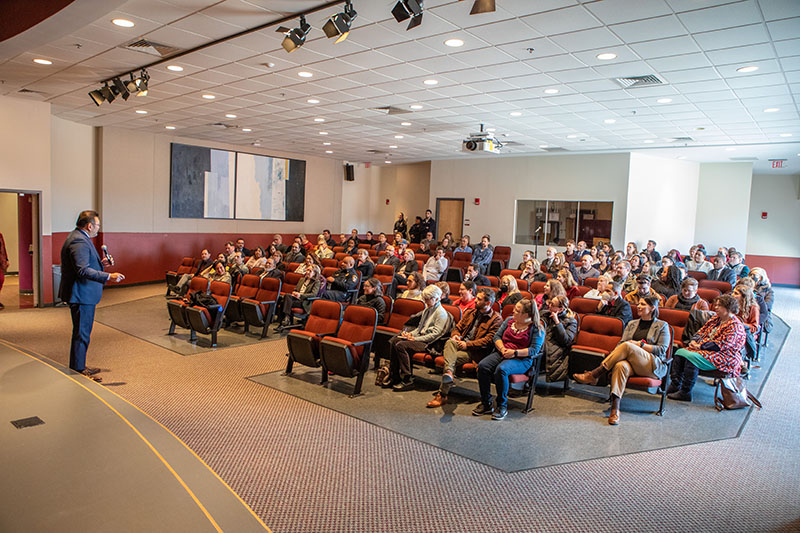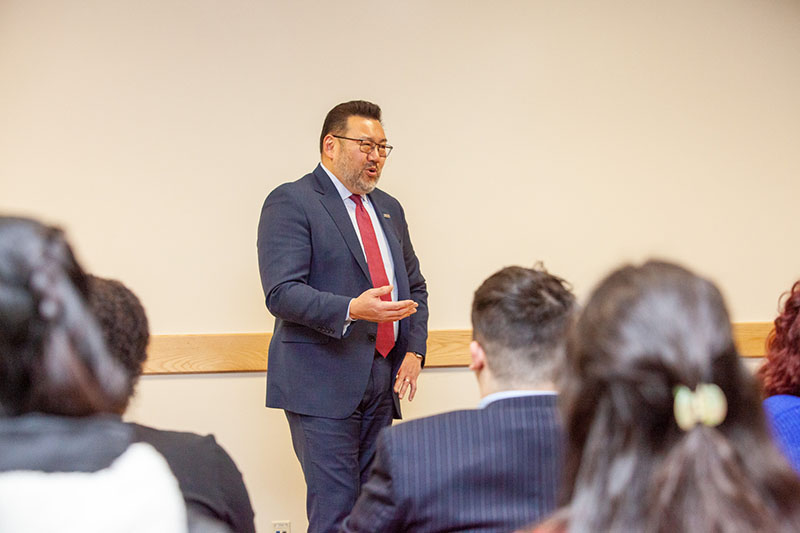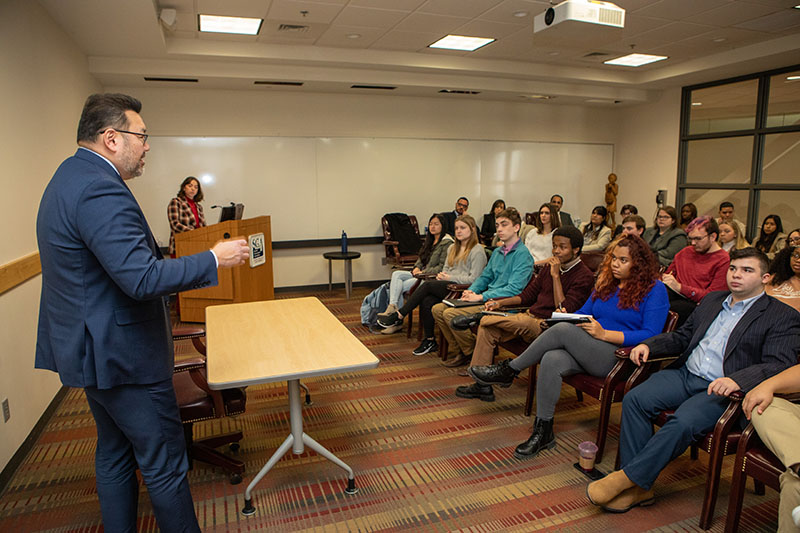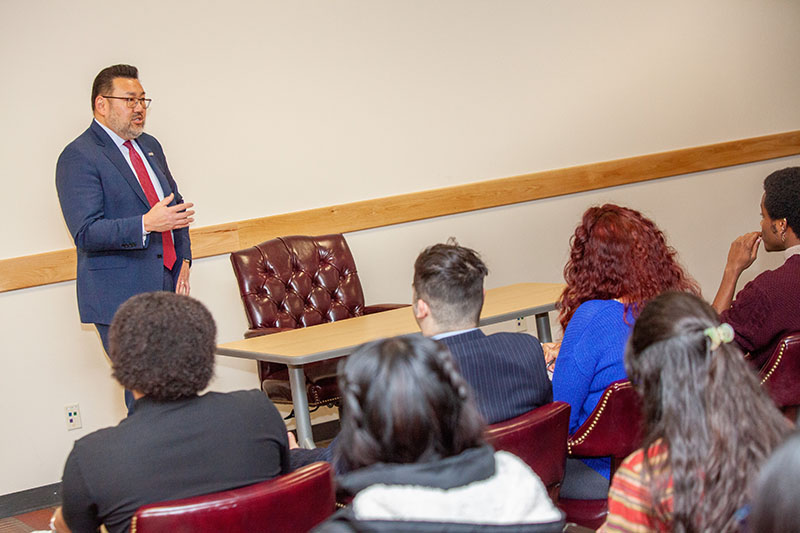- Apply
- Visit
- Request Info
- Give
President Cheng calls for advocacy to increase higher education budgets
Written by Lucinda Weiss
Published on March 07, 2023
President Terrence Cheng of the Connecticut State Colleges and Universities (CSCU) urged students, faculty and staff at Eastern Connecticut State University to talk to local legislators about Eastern’s financial needs as the state considers new higher education budgets.
“It’s important for all of you to be in touch with your legislators by email and to visit their offices,” he said. “Burn up those wires – let them know” he said, citing the system’s budget needs.
For the past 15 years CSCU’s budget has been operationally flat, increasing only to cover employee benefits and salaries, he said. Inflation has cut into capital spending; the state college system has received a little over $1 billion in capital funding since 2009 and Cheng is now asking for more than $2 billion in new capital investments in information technology and infrastructure improvements as part of his CSCU 2030 plan.
The plan also calls for operational budget increases over seven years.
The priorities of CSCU 2030 include supporting students, updating academic programs and making capital investments, Cheng said.
“We need more investment in our system,” he said. When legislators come to campus, they see the “shiny stuff,” he said, but “We don’t show them the warts – the broken stuff.”
Many in the local legislative delegation are Eastern alumni, he pointed out. “Hit that nerve as often as possible,” he urged. “Public higher education is a public good and it needs to be invested in,” he said.
With 17 institutions, 24 campuses and more than 80,000 students, CSCU is the largest educational entity in the entire state, he said, and 93 percent of its students stay in Connecticut.
“We’re the most critical girder of the day-to-day workforce” in the state, he added, with an $11 billion economic impact.
Faculty member Elizabeth Cowles, professor and department chair of biology, urged the audience to pay attention to legislative committee hearings in the coming weeks and to submit testimony in writing, if in-person or electronic testimony is not possible. “I urge you to advocate,” she said.
Lori Runksmeier, athletic director, and Diana Pepin, softball coach, also spoke to the need for a new athletic facility, which is included in the CSCU 2030 plan for Eastern. Emailing and visiting legislators is the best way to advocate, Cheng said.
Legislators expect him to speak for the system, Cheng said, but it makes “a huge difference” when they also hear from constituents who are affected by proposed budgets.






